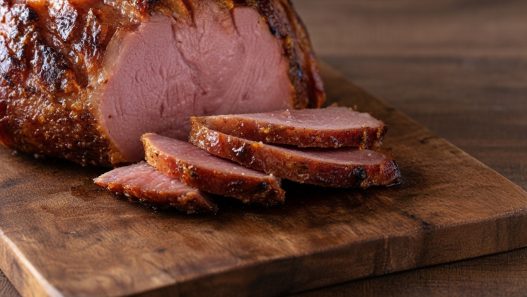Writing a eulogy for your wife is a profoundly emotional and intimate task. It’s an opportunity to honor her life, celebrate the love and memories you shared, and provide comfort to those who knew her. Crafting a eulogy that truly reflects her essence requires thoughtful reflection and heartfelt expression.
This article goes through the steps on how you can write the perfect eulogy for your wife as well as how to structure the eulogy so that it flows. We have also shared an example of a put together eulogy which you can use and adapt for your own wife’s eulogy.
Table of Contents
Steps to Writing a Eulogy for Your Wife
Key Elements to Include in a Eulogy for Your Wife
Example of a Eulogy for Your Wife
In-Depth Guide to Writing a Heartfelt Eulogy
Extra Elements To Include When Writing a Heartfelt Eulogy
What is a Eulogy?
A eulogy is a speech given at a funeral in commemoration of someone’s life. A eulogy serves several important functions:
- Honoring the Deceased: It celebrates your wife’s life and acknowledges her presence in your life and the lives of others.
- Providing Comfort: It offers solace to family and friends by highlighting positive memories and shared experiences.
- Creating a Legacy: It preserves her story and ensures her memory lives on.
Steps to Writing a Eulogy for Your Wife
1. Reflect on Her Life and Impact
Take time to reflect on your wife’s life and the impact she had on those around her. Consider the following aspects:
- Early Life: Reflect on her childhood, formative experiences, and what shaped her character.
- Marriage: Recall how you met, special moments you shared, and what made your relationship unique.
- Passions and Hobbies: Think about her interests, hobbies, and what brought her joy.
- Impact on Others: Consider how she influenced and touched the lives of others.
2. Gather Memories and Anecdotes
Reach out to mutual friends, family members, and acquaintances to collect stories and memories. This can provide a broader perspective and uncover stories you may not know.
3. Organize Your Thoughts
Create an outline to structure your eulogy. A typical format includes:
- Introduction: Begin with a warm welcome and acknowledgment of attendees.
- Personal Reflections: Share specific stories and memories that illustrate your wife’s personality, values, and impact.
- Key Attributes and Contributions: Highlight her character traits, achievements, and what made her special.
- Conclusion: Offer a final tribute and farewell.
4. Write with Emotion and Authenticity
When writing, focus on expressing genuine feelings and capturing the essence of your wife. Use descriptive language to paint a vivid picture of who she was and what she meant to you and others.
5. Edit and Revise
Review your eulogy multiple times. Consider the following tips:
- Clarity: Ensure your message is clear and easy to understand.
- Length: Aim for a eulogy that is respectful of time constraints but comprehensive in honoring her memory.
- Tone: Maintain a respectful and heartfelt tone throughout.
6. Practice Delivering the Eulogy
Practice reading your eulogy aloud. This can help you become more comfortable and confident in delivering it. Consider practicing in front of a trusted friend or family member for feedback.
Key Elements to Include in a Eulogy for Your Wife
Introduction
Begin with a heartfelt introduction. Acknowledge the presence of family, friends, and guests. You might start with a quote, poem, or a simple statement of gratitude for those gathered.
Personal Stories and Memories
Share specific stories and memories that illustrate your wife’s personality, values, and impact. Highlight moments that showcase her kindness, humor, and the way she enriched your life and the lives of others.
Attributes and Contributions
Discuss your wife’s key attributes and contributions. This could include her achievements, passions, and how she made a difference in the lives of those around her. Emphasize qualities such as empathy, generosity, and the unique way she approached life.
Family
Speak about your family life. If you have children speak about how they shaped your lives and what type of mother your wide was to your children. Speak about her positive qualities as a mother caring, loving, patient, kind. Share examples of how she was a great mother to your children.
Career
If your wife was passionate about her career speak about her dedication to her work. What she did and how she managed to work and raise your family. You can mention her colleagues or her place of work and projects she was passionate about.
Expressions of Gratitude
Express your gratitude for having had her in your life. Share what she meant to you and how she influenced your life positively. This is an opportunity to celebrate your marriage and the memories you hold dear.
Conclusion
Conclude with a heartfelt farewell. You might end with a favorite quote, a personal message, or a simple thank you. Offer comfort to those present and reinforce the lasting impact your wife had on everyone who knew her.
Example of a Eulogy for Your Wife
Introduction
Good afternoon, everyone. Thank you for being here today to honor and celebrate the life of my beloved wife, [Wife’s Name]. Your presence is a testament to the love and respect she inspired in all of us. As we gather to remember her, I would like to share some of the stories and qualities that made her the extraordinary person she was.
Personal Stories and Memories
One of my fondest memories of [Wife’s Name] is [share a specific memory or anecdote that reflects her personality or a special moment you shared]. It perfectly encapsulates her zest for life and her ability to bring joy to every situation. She had a unique gift for making everyone around her feel valued and cherished, and her laughter was contagious.
Attributes and Contributions
[Wife’s Name] was someone who always went above and beyond for others. Her compassion and empathy knew no bounds, and she was always there to offer support and guidance, no matter the circumstances. She touched so many lives with her kindness and generosity, leaving a lasting impression on everyone fortunate enough to know her.
Family and Children
One of the most beautiful aspects of [Wife’s Name] was her unwavering devotion to our family. She was the heart and soul of our home, always ensuring that love and laughter filled every room. Her nurturing spirit and gentle guidance shaped our children into the remarkable individuals they are today. Whether she was helping with homework, cheering at soccer games, or simply offering a listening ear, she approached motherhood with boundless love and patience. [Wife’s Name] taught our children the importance of kindness, integrity, and resilience, leaving an indelible mark on their hearts. Her legacy lives on in the values and memories she instilled in us, and we are forever grateful for the
precious time we shared as a family.
Career and Work
[Wife’s Name] was not only a loving wife and mother but also a dedicated professional who made significant contributions to her field. Her career was marked by a relentless pursuit of excellence and a passion for her work that inspired everyone around her. As a [her profession], she brought creativity, intelligence, and an unwavering work ethic to every project she undertook. Her colleagues admired her for her leadership, her collaborative spirit, and her ability to solve problems with grace and ingenuity. [Wife’s Name] balanced her professional ambitions with her family life effortlessly, always finding time to excel at work while being a constant presence at home. Her legacy in her career is one of inspiration and achievement, and she leaves behind a trail of accomplishments and a host of admirers who were fortunate to witness her brilliance and dedication.
Expressions of Gratitude
I feel incredibly grateful to have had [Wife’s Name] as my wife. She taught me so much about love, resilience, and the importance of embracing life with enthusiasm. Her love was a gift I will always treasure, and I am eternally grateful for the memories we created together.
Conclusion
As we say goodbye to [Wife’s Name] today, I find comfort in knowing that her spirit will live on in each of us. Her love and friendship have left an indelible mark on our lives, and her memory will continue to inspire us. I would like to end with a quote that I believe perfectly captures her essence: “Those we love don’t go away, they walk beside us every day. Unseen, unheard, but always near, still loved, still missed, and very dear.”
Thank you, [Wife’s Name], for everything. You will always hold a special place in our hearts.
In-Depth Guide to Writing a Heartfelt Eulogy
1. Reflect on Her Life and Impact
Early Life
Begin by reflecting on your wife’s early life. Consider her childhood, family background, education, and formative experiences. These early years often shape a person’s character and values, and understanding them can provide insight into who she was.
- Family Background: What was her family like? Did she have siblings? What were her parents like?
- Childhood: Where did she grow up? What were her favorite childhood activities?
- Education: Where did she go to school? Did she have any memorable teachers or experiences?
- Formative Experiences: Were there any significant events in her early life that shaped her?
Passions and Hobbies
Consider your wife’s passions and hobbies. These are often the things that brought her joy and fulfillment.
- Hobbies: What were her favorite hobbies? Did she have any special talents?
- Interests: What topics or activities was she passionate about?
- Legacy: How did her passions and interests influence others?
Impact on Others
Reflect on how your wife impacted the lives of those around her. This could include her friendships, relationships, and contributions to her community.
- Friendships: How did she approach friendships? What did her friends value most about her?
- Children: Speak about the impact she had on your children’s lives. Lessons she taught them and lessons you learned together about parenthood.
- Relationships: How did she interact with family members and loved ones?
- Community Involvement: Did she volunteer or participate in community activities?
2. Gather Memories and Anecdotes
Collecting stories and memories from mutual friends, family members, and acquaintances can provide a broader perspective on your wife’s life. These stories can add depth and richness to your eulogy.
Reaching Out to Others
- Mutual Friends: Talk to friends who knew her well.
- Family Members: Speak with her family to learn more about her early life and upbringing.
- Acquaintances: Consider reaching out to colleagues or acquaintances who may have unique insights.
Collecting Stories
- Significant Events: Ask about significant events or milestones in her life.
- Everyday Moments: Sometimes the most meaningful stories are about everyday moments and shared experiences.
- Lessons Learned: Ask others what they learned from your wife and how she influenced their lives.
3. Organize Your Thoughts
Creating an outline can help you structure your eulogy and ensure you include all important aspects of your wife’s life. Here is a suggested outline:
Introduction
- Opening Remarks: Start with a warm welcome and thank attendees for coming.
- Acknowledgment: Acknowledge the presence of family and friends.
Personal Reflections
- Childhood and Early Life: Share stories and memories from her early years.
- Passions and Hobbies: Discuss her favorite hobbies and interests.
- Marriage: Talk about your relationship and what made it special.
- Impact on Others: Reflect on how she touched the lives of those around her.
Key Attributes and Contributions
- Character Traits: Highlight her key attributes, such as kindness, humor, and resilience.
- Achievements: Discuss her notable achievements and contributions.
Expressions of Gratitude
- Personal Message: Share your personal feelings and gratitude for your wife.
- Impact on Your Life: Discuss how she influenced your life and the lessons she taught you.
Conclusion
- Final Tribute: Offer a final tribute and farewell.
- Closing Remarks: End with a quote, poem, or personal message.
4. Write with Emotion and Authenticity
When writing your eulogy, focus on expressing genuine emotions and capturing the essence of your wife. Use descriptive language to paint a vivid picture of her life and personality.
Be Genuine
- Speak from the Heart: Write as if you are speaking directly to your wife.
- Avoid Clichés: Use specific and personal language rather than generic phrases.
Use Descriptive Language
- Details: Include specific details and anecdotes to bring your stories to life.
- Emotion: Use language that conveys your emotions and feelings.
Balance
- Positive and Negative: While it’s important to focus on positive memories, don’t shy away from acknowledging challenges and struggles. This adds authenticity and depth.
5. Edit and Revise
Review and revise your eulogy multiple times to ensure clarity, coherence, and emotional impact. Consider the following tips:
Clarity
- Message: Make sure your message is clear and easy to understand.
- Flow: Ensure a logical flow from one section to the next.
Length
- Timing: Aim for a eulogy that is 5-10 minutes long when spoken.
- Content: Be concise and avoid unnecessary details.
Tone
- Respectful: Maintain a respectful and heartfelt tone throughout.
- Appropriate Humor: If using humor, ensure it is appropriate and in good taste.
6. Practice Delivering the Eulogy
Practicing your eulogy can help you feel more comfortable and confident when delivering it. Here are some tips:
Read Aloud
- Practice: Read your eulogy aloud multiple times.
- Pacing: Pay attention to your pacing and ensure you are speaking clearly.
Seek Feedback
- Trusted Friend or Family Member: Practice in front of a trusted friend or family member and ask for feedback.
- Adjust: Make any necessary adjustments based on their feedback.
Emotional Preparedness
- Prepare for Emotions: Be prepared for emotions to surface during the delivery. It’s okay to pause and take a moment if needed.
Extra Elements To Include When Writing a Heartfelt Eulogy
Incorporate Symbolic Elements
Symbolic elements can add a deeper layer of meaning to your eulogy. Consider incorporating symbols that were significant to your wife or represent her life and values.
Nature and Animals
If your wife loved nature and animals, you might use metaphors related to growth, nurturing, and the beauty of the natural world. For example, you could describe her as someone who nurtured friendships like a garden, cultivating meaningful connections with care and dedication.
Art and Creativity
If she was passionate about art, you could use artistic metaphors to describe her life and legacy. For instance, you might say she painted her life with vibrant colors, leaving behind a masterpiece of love and inspiration.
Use Quotes and Poetry
Quotes and poetry can add depth and resonance to your eulogy. Choose words that reflect your wife’s values and the impact she had on your life.
Favorite Quotes
Consider including her favorite quotes or passages from books she loved. These can provide insight into her beliefs and offer comfort to those who knew her.
Personal Poems
If you are comfortable with poetry, consider writing a poem dedicated to your wife. A personal poem can be a powerful way to express your feelings and pay tribute to her life.
Include a Moment of Silence or Reflection
Incorporating a moment of silence or reflection can provide attendees with a chance to process their emotions and remember your wife in their own way.
Guided Reflection
You might guide the attendees through a brief reflection, inviting them to recall a special memory or think about the impact your wife had on their lives. This can create a shared moment of connection and remembrance.
Silent Tribute
Alternatively, a simple moment of silence can be a powerful way to honor your wife’s memory. This quiet time allows everyone to reflect and pay their respects in their own personal way.
\
Collaborate with Others
Collaborating with mutual friends and family members can enrich your eulogy with diverse perspectives and stories.
Joint Eulogy
Consider delivering a joint eulogy with friends or family members who shared a close bond with your wife. Each person can contribute unique memories and reflections, providing a more comprehensive tribute.
Contributions
Invite others to contribute anecdotes, quotes, or messages. You can weave these contributions into your eulogy, creating a collective tribute that honors your wife from multiple angles.
Create a Memory Book or Slide Show
A memory book or slide show can complement your eulogy and provide a visual representation of your wife’s life.
Memory Book
Compile photos, letters, and mementos into a memory book that can be shared with attendees. This book can serve as a lasting tribute and a way for everyone to remember and celebrate your wife’s life.
Slide Show
Create a slide show of photos and videos that capture significant moments in your wife’s life. Play the slide show during or after your eulogy to add a visual element to your tribute.
Honor Her Legacy Through Actions
Consider how you can honor your wife’s legacy through actions and commitments that reflect her values.
Charitable Contributions
If your wife was passionate about a particular cause, consider asking attendees to make a charitable donation in her memory. This can be a meaningful way to continue her legacy of giving and compassion.
Personal Commitments
Reflect on the lessons your wife taught you and consider how you can carry forward her values in your own life. Share these commitments in your eulogy, inspiring others to do the same.
Conclusion
Writing a eulogy for your wife is a profound way to honor her memory. By reflecting on her life, gathering memories, and writing with emotion and authenticity, you can create a heartfelt tribute that celebrates her life and provides comfort to all who hear it. Remember to be kind to yourself throughout this process, as it can be both challenging and healing. Your words will create a lasting legacy of love and remembrance for your dear wife.




















